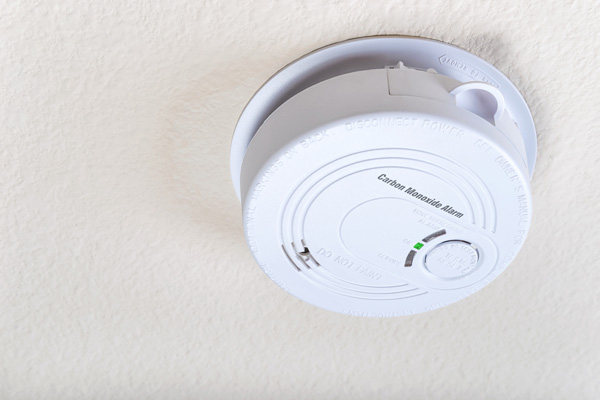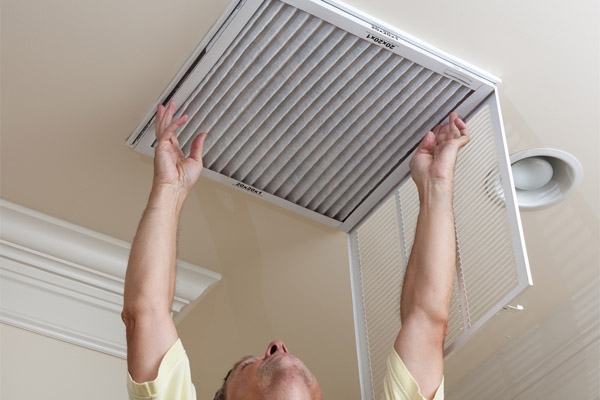Indoor Air Quality Demystified: All Your Essential FAQs Answered

Indoor air quality (IAQ) is a usually overlooked yet vital aspect of our living and working environments. This term describes the state of air within and surrounding our residential and commercial spaces. Maintaining excellent indoor air quality is crucial, as it has a direct and significant impact on the health and safety of those living or working in the space. Poor air quality can lead to a heightened risk of respiratory issues and allergies for some people over time. Recognizing and addressing the air quality in your home or workplace is crucial, ensuring it remains a priority for overall health. In this article, we discuss some of the most common indoor air quality FAQ.
Common Indoor Air Quality FAQ
Table of Contents
- 1 Common Indoor Air Quality FAQ
- 1.1 Why Is Indoor Air Quality Crucial in My Home?
- 1.2 How Do Pollutants Enter and Affect My Indoor Air?
- 1.3 What Are the Most Hazardous Pollutants Impacting Indoor Air Quality?
- 1.4 Where Are Air Pollutants Frequently Found?
- 1.5 Is My HVAC System’s Filtration Capable of Eliminating Pollutants?
- 1.6 Which HVAC Air Filters Are Recommended?
- 1.7 How Frequently Do I Have To Change My Air Filter?
- 1.8 What Other Products Can Enhance Indoor Air Quality Besides HVAC Filters?
- 1.9 Can Household Plants Contribute to Better Indoor Air Quality?
- 1.10 Conclusion
- 2 Contact Hart Home Comfort for Top-Quality Indoor Air Quality Solutions
Grasping the essence of indoor air quality is essential. Here are nine indoor air quality FAQs to deepen your understanding.
Why Is Indoor Air Quality Crucial in My Home?

Our homes and other buildings are typically sealed environments. We often keep windows and doors shut and seal any cracks or openings, usually to support the efficiency of our HVAC systems. However, such enclosed settings can become hotspots for trapping air pollutants like dust, pollen, viruses, mold spores, chemical vapors, and pet allergens. While airing out spaces by opening windows can help, it’s not always feasible. Continuous exposure to these pollutants in a sealed environment can elevate the chances of respiratory issues and contact allergies, especially in individuals more prone to such conditions.
How Do Pollutants Enter and Affect My Indoor Air?
Pollutants are typically composed of microscopic particles. Sources like dust originate from common building materials such as wood, insulation, fabrics, and wallboard. Humans also shed dead skin cells that mingle with other dust elements. Another common pollutant is animal dander, which includes tiny flakes of skin, hair, or feathers from indoor pets. Outdoor sources like pollen can also enter our homes, brought in by the wind, or inadvertently carried inside by people and pets. Additionally, indoor environments can harbor other pollutants, including harmful viruses and bacteria.
What Are the Most Hazardous Pollutants Impacting Indoor Air Quality?

When considering indoor air quality, certain pollutants pose significant risks. Many of these are chemical in nature. Key substances to be cautious about include carbon monoxide, asbestos (often found in older buildings), lead particles, and radon. Organic pollutants like mold also pose a serious health threat, especially when inhaled or ingested.
Where Are Air Pollutants Frequently Found?
Air pollutants are pervasive in our surroundings, so much so that it’s virtually impossible to eradicate them entirely. These pollutants can be found in various common areas and are often exacerbated by specific conditions like indoor moisture. Various parts of the home, including the bathroom, kitchen, and basements, as well as unclean appliances, carpets, and furniture, can all contribute to the accumulation and persistence of air pollutants.
Is My HVAC System’s Filtration Capable of Eliminating Pollutants?
A well-maintained HVAC system with an efficient filtration setup can significantly reduce the presence of indoor pollutants. This effectiveness hinges on regular maintenance and timely replacement of the system’s filters.
Which HVAC Air Filters Are Recommended?

Several types of HVAC air filters are available for improving indoor air quality, each with unique benefits. Ionizers charge air molecules electrically, using ions to remove particulates and microbes. HEPA (High-Efficiency Particulate Air) filters are highly sought after, as they can capture up to 99.97% of particles as small as 0.3 microns. UV filters utilize ultraviolet rays to neutralize microorganisms. Lastly, activated carbon filters utilize adsorption to attract and remove particulates from the indoor air.
How Frequently Do I Have To Change My Air Filter?
How often you should change your air filter depends on various factors, such as the type of filter used, the size of your home or building, the degree of indoor pollution, and whether pets are present. Generally, air filters should be cleaned or replaced every 30 to 60 days. Higher-quality filters may last up to 90 days. However, each home is unique, so it’s advisable to inspect your HVAC air filter monthly and replace it as needed.
What Other Products Can Enhance Indoor Air Quality Besides HVAC Filters?

Numerous products can aid in improving indoor air quality, though their effectiveness varies depending on the specific pollutants in your home or building. For issues like mold, mildew, and other microorganisms, a UV lamp is effective in eliminating pathogens, thereby reducing the risk of illness and allergies. When dust, pollen, pet dander, or chemical fumes are prevalent, an air purifier can be an excellent solution. Consulting with an HVAC professional can help you identify the most suitable indoor air quality solutions tailored to your home’s needs.
Can Household Plants Contribute to Better Indoor Air Quality?
Indeed, certain houseplants are beneficial for enhancing indoor air quality. Plants like the spider plant, Devil’s ivy, date palm, philodendron, chrysanthemum, Boston fern, and peace lily are recognized for their ability to absorb harmful substances from the air. They also play a role in maintaining humidity levels and add an aesthetic appeal to your indoor environment. However, their impact is limited, especially in heavily polluted areas or spaces lacking effective mechanical or electrical air purification systems. For optimal indoor air quality, complement the use of plants with efficient air filtration or purification systems.
Conclusion
Achieving and maintaining good indoor air quality is manageable with consistent cleaning and routine HVAC maintenance. Additionally, various types of equipment are available to control indoor pollutants effectively. If concerns about indoor air quality arise, consulting with your local HVAC expert is a wise step. They can guide you on the necessary actions and suitable equipment to ensure your home remains a safe and comfortable environment.
Contact Hart Home Comfort for Top-Quality Indoor Air Quality Solutions
Hart Home Comfort is a leading provider of HVAC services in Nassau County, Suffolk County, and Queens, New York. Our team comprises highly skilled, professionally certified technicians dedicated to delivering exceptional HVAC maintenance, repairs, installations, and replacements. Each technician brings knowledge and experience, ensuring your HVAC system receives the best possible service. We offer practical solutions to enhance indoor air quality, increase system efficiency, and boost overall comfort.
At Hart Home Comfort, we pride ourselves on offering the most competitive prices for heating and cooling services in the area. Our maintenance services are created to extend the life of your HVAC system and help reduce your home’s heating and cooling expenses. If you’re in need of HVAC repair or system upgrade, we can recommend the most suitable options for your home, aligning with your budget. We stand behind our work with a satisfaction guarantee. To schedule a service appointment and receive a complimentary in-home estimate, call Hart Home Comfort today.
For any questions about what Hart Home Comfort can do for you, give us a call today. Click here to contact us now or call us at (631) 667-3200 to find out more! Click the link to view our service area.

Related Articles:
